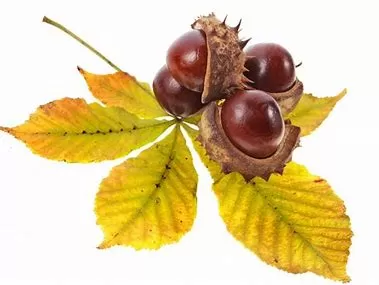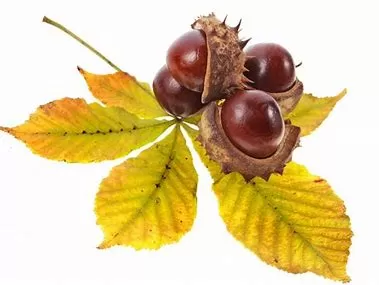- 0086-571-85302990
- sales@greenskybio.com
Who Cannot Eat Chestnuts? Exploring Health Implications and Allergies
2025-05-28
Chestnuts, with their sweet flavor and starchy texture, have been a cherished delicacy across various cultures worldwide. Roasted over an open fire, ground into flour, or used in stuffing, chestnuts offer a unique taste that has made them popular in culinary traditions. Beyond their delightful taste, they are packed with nutrients like vitamin C, potassium, and fiber. However, despite their numerous health benefits, chestnuts are not suitable for everyone. Certain individuals need to be cautious when it comes to consuming chestnuts due to potential allergies and health conditions. This article delves into who should avoid chestnuts and the reasons behind these dietary restrictions.
Allergic Reactions to Chestnuts
Food allergies are a common concern that affects millions of people globally. Chestnuts, though less commonly allergenic than tree nuts like almonds and cashews, can still trigger allergic reactions in certain individuals. Allergies to chestnuts might be linked to a broader category often known as tree nut allergies, although chestnuts themselves are classified as a fruit of the Castanea genus.
Latex-Fruit Syndrome
One of the most prevalent reasons some individuals must avoid chestnuts is due to a condition known as latex-fruit syndrome. This condition occurs because of a cross-reactivity between latex proteins and proteins present in certain fruits and nuts, including chestnuts. For individuals with latex allergies, consuming chestnuts can lead to allergic reactions that range from mild to severe.
Symptoms of an allergic reaction to chestnuts due to latex-fruit syndrome may include itching, hives, gastrointestinal issues, and in severe cases, anaphylaxis – a life-threatening condition that requires immediate medical attention. People with known latex allergies should consult an allergist or healthcare provider before consuming chestnuts.
Tree Nut Allergy Considerations
Although chestnuts are not true nuts, people with tree nut allergies should exercise caution as well. Some individuals with tree nut allergies may react to chestnuts due to cross-sensitization or the body mistaking chestnut proteins for those of other allergenic nuts. Therefore, accurate diagnosis and testing by a medical professional are crucial to determine if chestnuts are a safe addition to the diet.
Chronic Health Conditions
Apart from allergies, certain chronic health conditions may also necessitate avoiding or limiting chestnut consumption.
Kidney Problems
Chestnuts are a good source of potassium. While potassium is an essential mineral vital for numerous bodily functions, people with kidney problems need to monitor their potassium intake. Kidneys play a crucial role in regulating potassium levels in the body, and impaired kidney function can lead to dangerously high potassium levels. This condition, known as hyperkalemia, can cause symptoms like muscle weakness, fatigue, and in severe cases, heart problems. Individuals with kidney disease or those on potassium-restricted diets should consult healthcare professionals about the safe consumption of chestnuts.
Diabetes Management
While chestnuts are lower in fat compared to many other nuts, they are high in carbohydrates. This factor is particularly important for individuals managing diabetes. The carbohydrates found in chestnuts can raise blood sugar levels, which is a critical consideration for diabetics who need to maintain stable blood glucose levels. Diabetic individuals interested in incorporating chestnuts into their diet should do so under the guidance of a healthcare provider or nutritionist, ensuring portion sizes are controlled and that their overall carbohydrate intake is balanced.
Digestive Sensitivities
For some people, chestnuts can pose digestive challenges. This is largely due to their high fiber content, which, although beneficial for many, can cause digestive discomfort for others.
Irritable Bowel Syndrome (IBS)
Individuals with IBS may experience symptoms such as bloating, gas, or diarrhea when consuming high-fiber foods like chestnuts. The fermentable oligosaccharides, disaccharides, monosaccharides, and polyols (FODMAPs) in chestnuts can be particularly problematic, as these compounds can exacerbate IBS symptoms. A low-FODMAP diet, often recommended for managing IBS, may require limiting or avoiding chestnuts.
Conclusion
While chestnuts can be a nutritious and delicious part of many diets, they are not suitable for everyone. Individuals with latex allergies, certain tree nut allergies, chronic kidney conditions, diabetes, and some digestive issues need to exercise caution or avoid chestnuts entirely. Personal health status and dietary needs vary widely, and as with any dietary consideration, the key is personalized advice. Consulting with a healthcare provider, allergist, or registered dietitian can help ensure that dietary choices align with individual health requirements.
Chestnuts will continue to be a culinary treasure for many cultures, evoking the comforting warmth of festive seasons. Understanding who should avoid them, however, is crucial to ensuring that everyone can enjoy their meals safely and healthily. Therefore, awareness and education about potential allergies and health implications surrounding foods like chestnuts remain essential in the broader discussion of nutrition and wellness.
-
What are the benefits of taking Boswellia?
2025-05-28
-
Does horse chestnut raise blood sugar?
2025-05-28
-
Is horse chestnut FDA approved?
2025-05-28
-
Does horse chestnut affect blood pressure?
2025-05-28
-
Is horse chestnut extract safe?
2025-05-28
-
Is horse chestnut good for your legs?
2025-05-28














